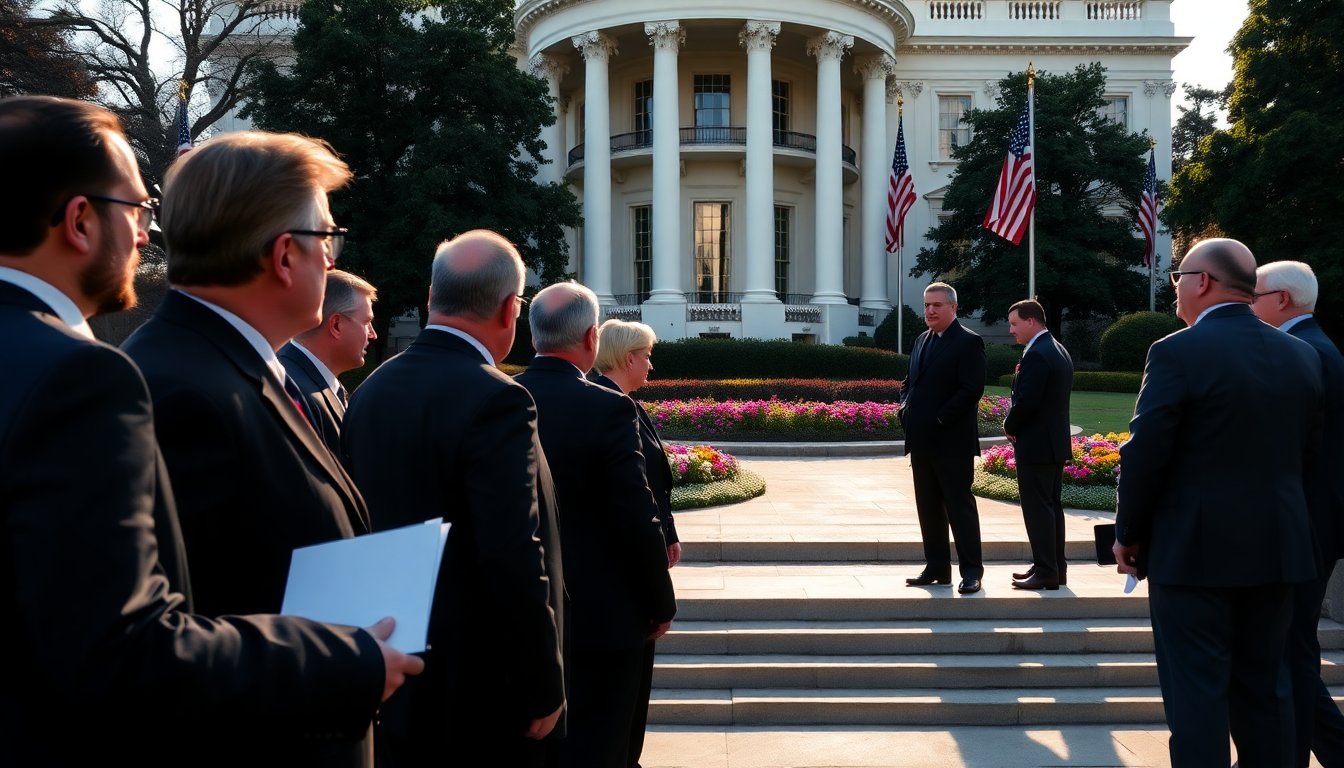Table of Contents
In an address from the White House, President Trump delivered a clear message regarding Hamas, stating that the militant group must pursue peace or face significant consequences. This statement coincides with efforts to uphold a cease-fire agreement recently negotiated between Israel and Hamas, a diplomatic achievement amidst ongoing regional tensions.
Trump asserted, “They’re violent people. Hamas has been very violent, but they don’t have the backing of Iran anymore.” His comments highlight a perceived shift in the dynamics surrounding Hamas, suggesting the group is becoming increasingly isolated internationally. “They have to be good, and if they’re not good, they’ll be eradicated,” he warned, reinforcing his administration’s firm stance.
Diplomatic maneuvers and regional talks
The urgency of Trump’s message aligns with ongoing diplomatic efforts led by special envoy Steve Witkoff and Jared Kushner, his son-in-law. These officials are currently engaging with leaders in Israel to maintain momentum for the 20-point peace plan championed by Trump. Their discussions are critical for sustaining a fragile peace temporarily disrupted by violence.
Meetings with Israeli leadership
On Monday, Witkoff and Kushner met with Israeli Prime Minister Benjamin Netanyahu, who had recently suspended entry into the area after the deaths of two Israeli soldiers during a confrontation in Gaza. In retaliation, Israel conducted a series of airstrikes, which Hamas reported resulted in 26 fatalities. These developments exemplify the volatile nature of the situation, necessitating immediate diplomatic engagement.
In the backdrop of these discussions, Vice President JD Vance is expected to arrive in Israel, signaling the administration’s commitment to stabilizing the region. His presence aims to reinforce the importance of adhering to the peace plan laid out by Trump.
Recent progress and challenges
Just one week prior, Hamas released all 20 Israeli hostages, marking a significant moment in halting hostilities. This breakthrough was celebrated by Trump during his visit to both Israel and Egypt, showcasing the potential for a lasting agreement. However, as U.S. officials work to sustain this progress, they face challenges in addressing ongoing violations of the peace terms.
Handling hostage situations
The slow pace of returning the remains of deceased hostages has stirred unrest within Israeli society. In response, U.S. officials have coordinated with Turkish recovery teams to assist in locating these remains, with Witkoff expressing confidence that all will eventually be returned. This proactive approach reflects the administration’s commitment to addressing humanitarian concerns while navigating complex political landscapes.
Witkoff and Kushner frequently characterize the peace agreement as a strategic triumph for Israel, envisioning a substantial expansion of the Abraham Accords, which facilitated diplomatic relations between Israel and four Arab nations during Trump’s previous term. However, key issues remain unresolved, particularly concerning the disarmament of Hamas and the formation of a transitional Palestinian government.
International support and future prospects
In light of these challenges, U.S. officials have noted offers from various countries, including Egypt, Turkey, Qatar, and Indonesia, to contribute peacekeeping forces to a proposed stabilization initiative. Interest from countries such as Azerbaijan further underscores the international community’s engagement in fostering stability in the region.
Trump has highlighted the potential for wealthier Arab nations, particularly those rich in oil and gas, to provide financial support for rebuilding efforts in Gaza, which is home to approximately 2 million residents. This financial backing could be pivotal in creating sustainable peace and improving living conditions for those affected by the ongoing conflict.


